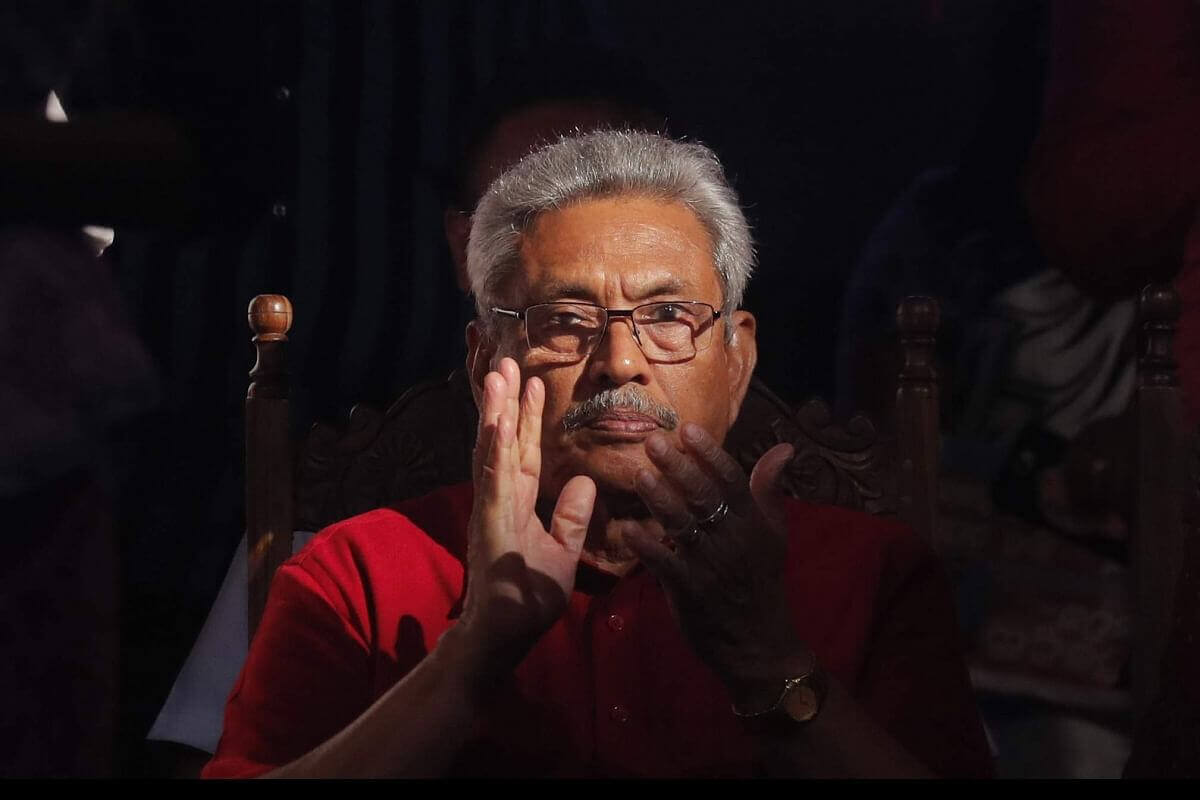South Asia
Sri Lanka’s parliament has approved a state of emergency declared by President Gotabaya Rajapaksa, who said its imposition is necessary to control food prices and prevent hoarding amid shortages of some staple goods. [Al Jazeera]
Minister of Information and Broadcasting of Bangladesh, Hasan Mahmud, said that Bangladesh is ahead of Pakistan in the development index and that although it was devastated by the Pakistan military, it has emerged as a model of socio-economic development for countries in Asia and Africa after liberation in 1971. [The Hindu]
Central Asia and the Caucasus
Two Armenian citizens held captive in Azerbaijan returned to Armenia on Tuesday in exchange for an Azerbaijani soldier who was detained for illegally crossing the Artsakh (Nagorno-Karabakh) border. The return of the captives was mediated by Gen. Rustam Muradov, the commander of the Russian peacekeeping forces in Artsakh. [Armen Press]
The Russia-led Collective Security Treaty Organization (CSTO) stated three days of military exercises in Kyrgyzstan on Tuesday in light of the ongoing situation in Afghanistan. Troops from Russia, Kazakhstan, and Kyrgyzstan will participate in the drills, also known as Rubezh (Frontier) 2021, on Kyrgyzstan’s Edelvis training field. [RFE/RL]
East and Southeast Asia
Chinese State Councilor and Foreign Minister Wang Yi will pay an official visit to Vietnam, Cambodia, Singapore, and South Korea from September 10-15. [Global Times]
As of Monday, China has administered more than 2.11 billion doses of COVID-19 vaccines. More than 969.7 million of them have received both doses. [Global Times]
Europe
The United Kingdom (UK), on Tuesday, reported 209 COVID-19 deaths, the highest daily total since March 9. COVID-19 cases have been rising steadily in the UK since August. [Reuters]
Russian defence lawyer Ivan Pavlov, who represented Alexei Navalny's team this summer after the jailed Kremlin critics political and activist networks were banned for being “extremist,” has fled the country, saying that he was barred from using the phone and the internet and from communicating with colleagues and clients. [The Moscow Times]
Latin America and the Caribbean
The Venezuelan government and representatives from the opposition released a joint statement following their first round of negotiations in Mexico City, wherein they agreed to “establish mechanisms for the restoration and achievement of resources to meet the social needs of the population with special emphasis on the effects of the COVID-19 pandemic.” The next round of talks will focus on the country’s judicial system. [Associated Press]
During a visit to Santiago, French President Emmanuel Macron offered his support to his Chilean counterpart, Sebastián Piñera, in drafting a new constitution. The two leaders also talked about upgrading the trade agreement between Chile and the European Union as well as climate action policies ahead of the COP26 summit in November.
Middle East and North Africa (MENA)
The International Atomic Energy Agency (IAEA) reported on Tuesday that Iran has continued to increase its stockpile of highly enriched uranium that could be used for making nuclear weapons. The Agency also noted that Iran has “seriously undermined” the IAEA’s monitoring activities by refusing officials access to monitoring equipment. [Associated Press]
At least 150 people starved to death in Ethiopia’s Tigray region in August, according to the Tigray External Affairs Office. The United Nations reported that food aid ran out in Tigray last month amid a “near-complete” blockade of humanitarian aid by Ethiopian authorities. [Associated Press]
North America
After being struck with gravel during a campaign stop in London, Ontario yesterday, Canadian Justin Trudeau described the protesters as a “mob” and vowed not to “let them win,” saying, “They will not interfere with [...] this election.” [CBC News]
On Tuesday, United States President Joe Biden visited areas impacted by Hurricane Ida in New York and New Jersey. He said that the devastation caused by the storm underscores the “existential threat” of climate change, saying, “We’re living through it now. We don’t have any more time.” [USA Today]
Oceania
A group of Aboriginal people filed a complaint with the United Nations Committee on the Elimination of Racial Discrimination over Western Australia’s draft heritage protection laws, calling them incompatible with Australia’s international obligations. [Reuters]
The websites of a number of financial institutions in New Zealand and its national postal service were briefly down on Wednesday, with officials calling it a cyber attack. [The Straits Times]
Sub-Saharan Africa
Zimbabwean President Emmerson Mnangagwa said he will never reverse the land reforms undertaken under former leader Robert Mugabe, who was in power from 1980 to 2017. During the early part of the new millennium, the land of many white farmers was seized as part of Mugabe’s land reforms. [New Zimbabwe]
South African trade unionists are planning to blockade the country’s border with Eswatini as part of a wider call for democracy in the latter. This closely follows recent pro-democracy protests against King Mswati III. [Swazi Media Commentary]
World News Monitor: 8 September, 2021
A quick look at events from around the globe.
September 8, 2021

Sri Lankan President Gotabaya Rajapaksa SOURCE: AP
